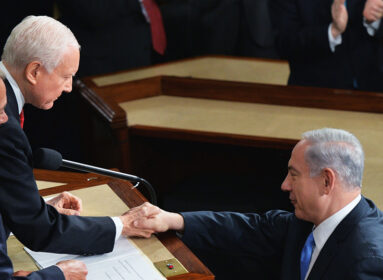
Fairfield County woman makes a pilgrimage to a French abbey
By Cindy Mindell
STRATFORD – Joseph Kleinhandler was 10 when his mother put him on a train filled with children bound for summer vacation on a farm in the Jura Mountains of northeastern France. That day on the platform in the summer of 1942 was the last time the two would see each other.
The only child of Polish-Jewish immigrants to the French Lens, a town in northern France near Lille, Kleinhandler was accompanied by a representative of the local Red Cross, who would get him from the Jura to the Abbey of Valloires in Argoules, 55 miles west of his family’s home in Lens. The property had been purchased in 1922 by Thérèse Papillon, a nurse awarded for her service during World War I, and her brother, to house a préventorium for pre-tubercular children. Now, with the Nazi invasion of France, Papillon had instructed the Red Cross in Lens to send Kleinhandler and two other Jewish children to be hidden at the abbey among the 350 ill young residents.
Kleinhandler would spend the next two years there as Joseph Petit, his true identity known only to Papillon and three other staff members who ran the institution. He attended the required daily Mass and Sunday-evening vespers services, excelling so well in catechism classes that he was asked to teach the other children. Rather than allow him to make First Holy Communion and convert to Catholicism, the priest in charge had Kleinhandler help the organist pump air into the organ during Mass.
In 1944, when the First Canadian Army liberated France from the Nazis, Kleinhandler made his way back to Lens, where he learned that his parents had been transported to Auschwitz along with more than 500 fellow Jews from the town. For the next three years, he lived with a Jewish family who had evaded the roundup and dodged the Nazis.
Using a list of relatives’ names and addresses that his father had given him before that fateful day on the train platform, Kleinhandler wrote to his mother’s brother, David Glantz, who had immigrated to Bridgeport with several family members in the 1920s. Through an American Jewish army chaplain, the Glantzes were able to locate Kleinhandler and then secured a visa for him. He arrived in the U.S. in 1947 at age 15. He had lost 30 members of his family to the Nazis.
He learned English, earned an accounting degree from the University of Connecticut in 1954 and married a Catholic woman, settling in Monroe and raising three children. The family moved to California in the early ‘70s, where Kleinhandler became an executive at Warner Communications. After divorcing his wife, Kleinhandler married again in 1980 and had a daughter, Shannon, the following year.
After decades of silence about his wartime experiences, Kleinhandler was finally convinced by two cousins on his mother’s side to write his story for a family history, which he did in 1992. He shared that story with Shannon’s high school class in 1999 and died two years later.
Wendy Glantz Swain of Stratford — one of the two cousins who edited the family history — was reading the self-published A History of the Glantz Family a few months ago when she decided that it was time to make a pilgrimage to the abbey and thank the current staff for the actions of their predecessors. A native of Bridgeport, Swain was only four when Kleinhandler arrived from France, but developed a close relationship with him as a teenager and adult.
“Joey’s gratitude to the nuns and nurses at the Abbaye de Valloires was a huge part of his life,” says Swain. “My family and I are extremely grateful to the three nurses and one nun at the abbey who believed in their obligation to a moral code, who were willing to put their lives on the line to save Joey and the two other Jewish children from Lens. I wanted to celebrate the heroes of the abbey and to be the keeper of Joey’s story.”
Swain, who is fluent in French and a retired French and Spanish teacher, emailed Emmanuel de Lapparent, Secretary General of the abbey. In late October, she and her husband, Bob, made the trip to northern France. The abbey is now a hotel and conference center known for its botanical gardens and a home for at-risk children.
The Swains spent two days at the abbey, “where we were treated like royalty,” says Wendy, who told her cousin’s story to local dignitaries and was followed around by area journalists. The couple also visited Lens, where they thanked the staff of the local Red Cross for its part in Joey’s rescue, and located the Kleinhandler home.
Wendy brought two gifts from the Judaica shop at Congregation B’nai Israel in Bridgeport, where she is a member – a silver-encrusted shofar and a silver kiddush cup – which she presented to the president of the abbey at a festive luncheon held to honor the Swains.
“They knew what the cup was for but didn’t know what the shofar was,” she says. “I told them, ‘We use it at the New Year, but I want it to announce the good news of the abbey.’”
She also made a donation to the abbey from her family’s estate. “Our dad would have been so happy that that was where some of the money went,” she says.
Swain’s father, David Glantz, had come to the U.S. in 1929 with his father and two siblings, preceded by a sister who had settled in Bridgeport in 1920. In 1939, David went back to Poland and Lens to try to convince his remaining five siblings and his wife’s family to emigrate, but to no avail.
“Joey never talked much to anyone about his experiences during that awful time in his life and felt that he didn’t deserve the title of ‘Holocaust survivor’ because he didn’t survive the concentration camps,” Swain says. “But to me, he embodies the term ‘survivor.’ Joey was a true survivor in every sense of the word. He didn’t dwell on his childhood horrors, but became a special, loving human being. He said that he never felt a sense of joy or gratitude or elation at having survived. The feelings, the emotions, the enormity of the whole experience had never changed for him over the years. He always asked himself, ‘WHY did it have to happen?’”
Before a visit to Auschwitz in 2008, where Kleinhandler’s parents and aunt and uncle were murdered, Swain was moved to write a poem to them (included below) about the man they never had a chance to meet. She gave the poem to her guide, who placed the poem on the site.
To Charna and Toba and their Husbands, Abraham and Avrom on the occasion of a visit to Auschwitz/Birkenau on September 16, 2008
I arrive with a heavy heart
Hard to know where to start
The sense of loss sweeps over me
Your lovely faces, I never got to see.
Our family ranks were sadly thinned
You had not hurt others, had not sinned.
How our lives would have been enhanced
If all around us, you could have danced.
How proud you would have been, Charna,
of your son
A man filled with humanity for everyone.
Joe touched our lives with his soft,
strong presence
A cousin, a friend—without him less
of an essence
Shannon, the darling of his life
Your granddaughter has faced much strife.
A beauty, a dedicated young woman is she
Embodying all you would have wanted her to be
Charna and Toba, we remember you
and your short existence
We ever hold you in our hearts
with persistence.
Cap: Abbey of Valloires today
Leave Your Reply
You must be logged in to post a comment.








 Southern New England Jewish Ledger
Southern New England Jewish Ledger













1 Comment